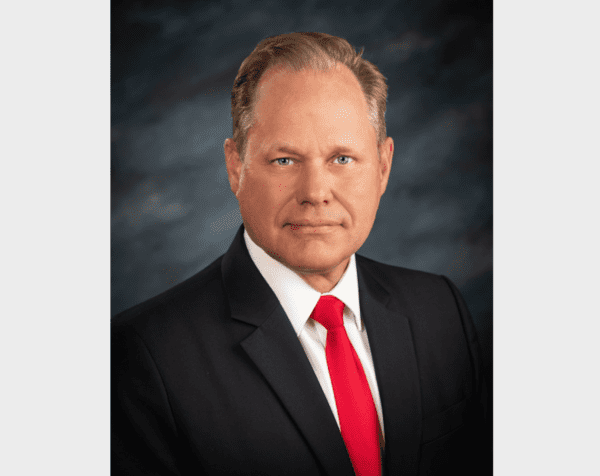By Duaa Eldeib
This story was originally published by ProPublica. ProPublica is a Pulitzer Prize-winning investigative newsroom. Sign up for The Big Story newsletter to receive stories like this one in your inbox.
Series: Stillbirths: When Babies Die Before Taking Their First Breath
Members of Congress on Thursday introduced sweeping legislation that aims to reduce the country’s stillbirth rate, tackling gaps in research, data and awareness as well as authorizing tens of millions of dollars in new funding.
If passed, the Stillbirth Health Improvement and Education (SHINE) for Autumn Act of 2023 would be the most comprehensive federal stillbirth law on record. Rep. Young Kim, R-Calif., who introduced the bill in the House, called it “the first step in the right direction” to help prevent stillbirths and ensure healthy pregnancies.
As a mother, grandmother and co-chair of the Maternity Care Caucus, Kim said she understands the challenges firsthand. She said that when one of her daughters lost a baby a few years ago, the doctor’s response was, “It happens.”
“These experiences have made me want to be a part of the solution,” she said. “I want us to have more information and make sure things are better for my grandkids. We should be able to prevent the preventable.”
Every year in the U.S., more than 20,000 pregnancies end in stillbirth, the death of an expected child at 20 weeks or more. Research shows as many as 1 in 4 stillbirths may be preventable, a figure that jumps to nearly half as the due date nears. But for years, the U.S. stillbirth crisis has been overlooked.
ProPublica has reported extensively on the devastating effects of stillbirth on families and the country’s failure to prevent, prioritize and raise awareness around stillbirth. Stark racial disparities underscore the crisis, as Black women are more than twice as likely to have a stillbirth as white women. But government officials, doctors and researchers often cite the dearth of research, data and autopsies as barriers to change.
Kim and other lawmakers lauded ProPublica’s reporting for bringing the stillbirth crisis to the forefront and revealing shortcomings in how the nation’s health care system was combating stillbirths.
“ProPublica’s work has been so important for shedding light on the challenges related to stillbirth, amplifying the stories of mothers and women whose voices have not been heard, and highlighting the gaps in our stillbirth-related data and where the United States stands compared to other countries,” said Kim, who was not involved in last session’s legislation.
Sen. Cory Booker, D-N.J., introduced legislation in the Senate last year with Sen. Marco Rubio, R-Fla., but it did not pass. They joined forces again to reintroduce a measure on Thursday. Booker said the growing list of bipartisan cosponsors and the relentless work of advocates makes him optimistic that it will pass this session.
“Sadly, despite staggering statistics, stillbirth remains one of the most underfunded and understudied public health issues in the United States. This legislation would provide long-overdue resources towards research and data collection,” said Booker, adding that he was “incredibly grateful” to ProPublica for raising awareness and giving a human face to the ongoing crisis, which has been “critical” to garnering support for the legislation.
The SHINE for Autumn Act is named after the daughter of New Jersey maternal health advocate Debbie Haine Vijayvergiya. Autumn Joy was stillborn 12 years ago this month.
“This is life-saving, historic, monumental legislation,” Haine Vijayvergiya said. “I’ve been waiting and working so hard all these years, knocking on doors and screaming from rooftops trying to get someone’s attention, trying to find anyone who can help to elevate the sense of urgency around this issue.”
She teared up as she expressed gratitude to the lawmakers who listened and signed on to the legislation. She’s now turning her attention to getting the bill passed, which means a steady stream of meetings and calls.
“ProPublica has helped to shine the very brightest light,” she said. “I don’t think we’d be where we are today without the help of ProPublica.”
The bill marks the second time this month that federal lawmakers have introduced stillbirth legislation. The Maternal and Child Health Stillbirth Prevention Act specifically adds stillbirth prevention to the list of federal funding programs earmarked for mothers and children.
The SHINE for Autumn Act would authorize a total of $45 million in federal funding over the next five years for the various programs. That includes building a partnership between federal and state agencies to focus on collecting better data on stillbirths and risk factors, as well as building capacity at the local level to assess and standardize that data. It also seeks to develop and make educational awareness materials publicly available. Many women interviewed by ProPublica said they didn’t know they were at risk until they delivered their stillborn baby.
In addition, the bill paves the way for a perinatal pathology fellowship program to help provide additional training for fetal autopsies. In 2020, autopsies were conducted or planned in less than 20% of stillbirths, according to data from Centers for Disease Control and Prevention, which also shows that the cause of death is not determined in about one-third of stillbirths.
Rep. Dave Joyce, R-Ohio, Rep. Kathy Castor, D-Fla., and Rep. Robin Kelly, D-Ill., are all cosponsors in the House. Kelly, who co-chairs the Maternity Care Caucus with Kim, said the federal government has a major responsibility when it comes to ensuring maternal and newborn care, and part of that includes addressing the alarming racial disparities in maternal mortality and stillbirth.
“Stillbirth is a deeply painful experience for many mothers, and another area (of) health care where Black women feel a disproportionate burden,” she said. “By shedding light on this issue and directing more resources and more awareness to supporting moms and babies, we can improve outcomes across the board.”
Key medical organizations, including the American College of Obstetricians and Gynecologists and the Society for Maternal-Fetal Medicine, have also backed the legislation. Dr. Tony Sciscione, president of the Society for Maternal-Fetal Medicine, said preventing stillbirths is crucial.
“One of the most difficult things that maternal-fetal medicine subspecialists do is comfort families as they try to understand why their baby was stillborn,” he said. “For patients and clinicians, there are far too many questions and far too few answers.”
ProPublica is a Pulitzer Prize-winning investigative newsroom. Sign up for The Big Story newsletter to receive stories like this one in your inbox. Republished with Creative Commons License (CC BY-NC-ND 3.0).







